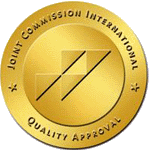March 4 is World obesity day!

According to the World Health Organization (WHO), overweight and obesity are the result of the formation of abnormal or excessive fat deposits that can be harmful to health.
What causes weight gain?
The main reason is an energy imbalance, in which the caloric content of the diet exceeds the energy needs of the body.
Causes of energy imbalance:
- Changes in diet, namely, increased consumption of foods with high energy density and high fat content;
- Changes in physical activity - decreased physical activity, more people leading sedentary lifestyles (sedentary activities, changes in travel patterns and increasing urbanization).
Health consequences of overweight and obesity:
Overweight/obesity is one of the main risk factors for non-communicable diseases such as:
- Diseases of the circulatory system (heart disease, stroke);
- Diabetes;
- Musculoskeletal system disorders (degenerative joint disease);
- Certain cancers (including endometrial, breast, ovarian, prostate, liver, gallbladder, renal cell and colon cancer).
|
The higher the body mass index, the higher the risk of these non-communicable diseases! |
Body mass index (BMI) is an indicator that is calculated as the ratio of body weight in kilograms to the square of height in meters (kg/m2).
BMI greater than or equal to 25 – overweight;
BMI greater than or equal to 30 – obesity.
|
Overweight/obesity and 2/3 of associated non-communicable diseases can be prevented with proper lifestyle choices! |
At the individual level, you can control overweight:
1. By practicing healthy eating with moderate portions.
2. By limiting the consumption of high-calorie and industrially processed foods.
3. By exercising regularly (150 minutes per week).
3. By leading an active lifestyle and avoiding physical inactivity.
5. By tracking your progress and staying motivated using daily journals or modern mobile apps to track your physical activity and nutrition.
At a societal level, controlling obesity includes several key measures:
- Increasing awareness of healthy eating and regular physical activity through educational campaigns and public events.
- Creating and support healthy public environments.
- Implementation of tax measures aimed at reducing the consumption of unhealthy foods, for example, high-calorie foods and sugary drinks.
- In the food industry, reducing the fat, sugar and salt content in processed foods;
- Regulation of advertising of harmful products (especially related to children and adolescents)
- Supporting access to healthy foods at affordable prices.
- Implementation of policies to improve physical activity in educational institutions and workplaces.
- Ensuring access to health care and support for people with obesity, including weight management and behavioral support programs.




